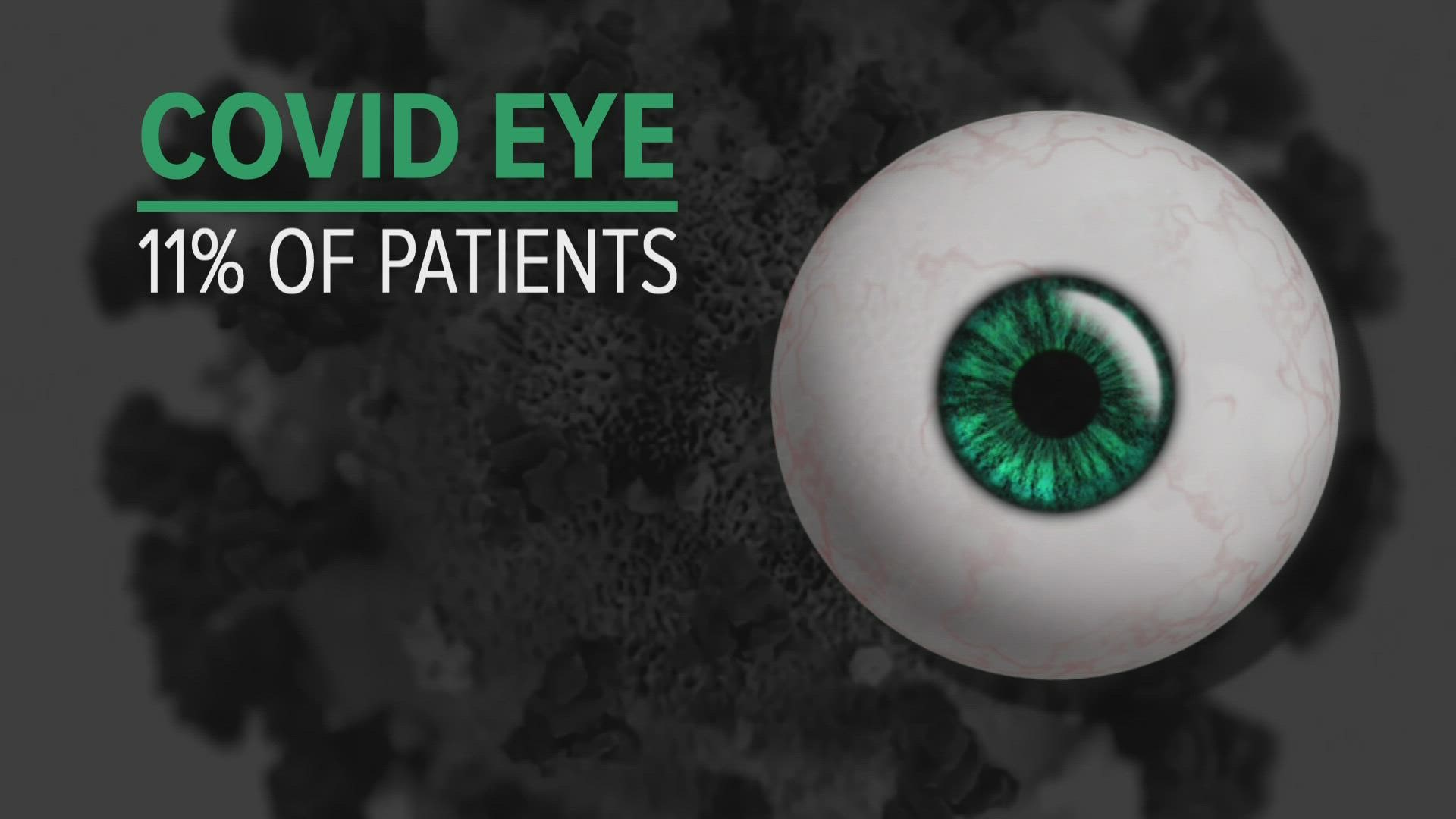NEW ORLEANS — In the two years that COVID has been around, we've seen many different side effects emerge from the heart, lungs, brain, and even stomach problems are among them.
But we're still learning about new ones that doctors are uncovering.
Early on, we know there were people who lost their smell and taste from COVID-19. Now we're seeing its effect on the eyes, and hearing about its effect on the ears.
“What we're learning is that like all other organ systems, COVID can affect the inner ear. And we're actually seeing little tiny bits of viruses in people who have had COVID,” said Dr. Moisés Arriaga, Professor of Otolaryngology and Neurosurgery at LSUHSC.
Dr. Arriaga cares for patients with hearing and balance disorders, and he says symptoms of COVID ear problems vary.
“We're seeing people who have had hearing loss related to COVID. We're seeing people who have ringing in the ears after they've had COVID, and we're seeing people who have ongoing dizzy problems,” said Dr. Arriaga.
Eye problems are usually the first sign you've been infected. At least 11 percent of people with COVID, get either dry eyes, redness, itching, blurry vision, sensitivity to light or the feeling that there is a foreign particle in the eye.
“Patients can present with red eye, so conjunctivitis or pink eye, as people call it, and that will be the presenting sign. So people brush it off, you know because pink eye happens. They'll just think it's allergies, something's irritating their eye,” said LSUHSC Ophthalmologist Dr. Lena Al-Dujaili.
Now we're learning the virus can be in tears.
Reports show that after you test negative with a nasal swab, many days or even weeks afterwards the virus can still be coming out in your tears.
“So you're shedding virus in your tears. They're not sure how, if it's transmitting to people. They know when you're very active in the beginning of your infection, you could be spreading it, but they don't think, they're not sure if later on if you are,” said Dr. Al-Dujaili.
So how long will your eye and ear problems last?
“For most people the good news is, it's not permanent. For most people we're seeing improvement, but some of these conditions when their combined to other things that COVID has caused, are longer lasting,” said Dr. Arriaga.
And while he says there are treatments for the symptoms, it's still best to never get COVID. The vaccine is proven to lower your risk. And while research continues to find new COVID symptoms, it's also finding better treatments.
And Dr. Arriaga says that the symptoms of hearing loss, ringing in the ears, and balance problems can all be treated. And if you have ringing in the ears, make sure you keep some background sound on. Complete silence makes it worse.

